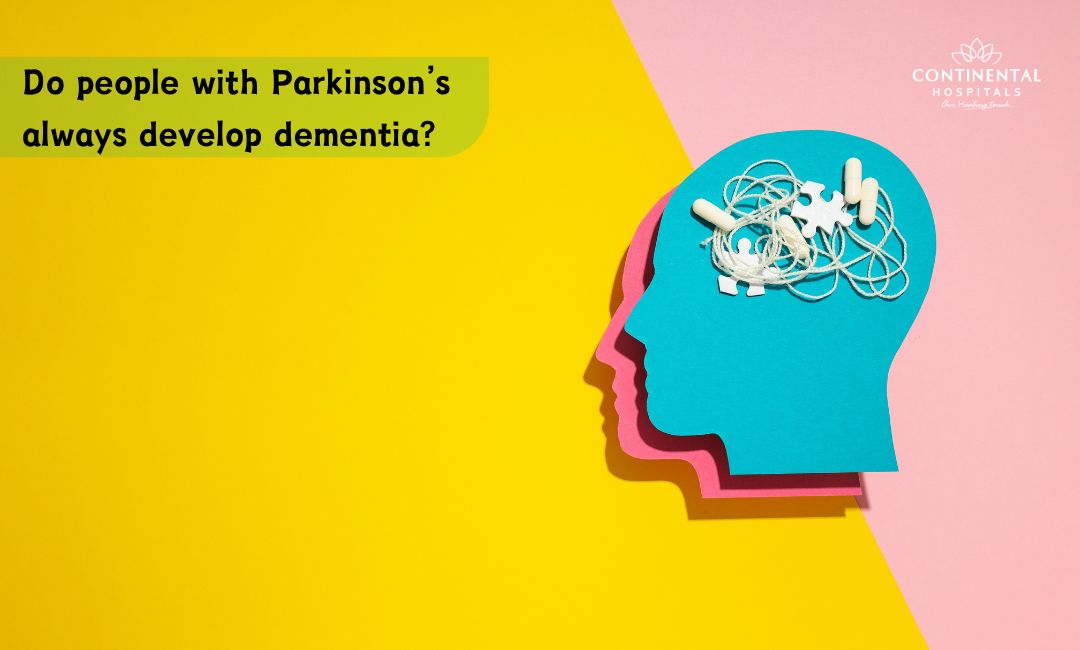Parkinson’s disease is a complex neurological disorder that affects millions worldwide. As we delve into the question of whether individuals with Parkinson’s always develop dementia, it's crucial to understand what Parkinson’s disease entails and the nuances of its relationship with cognitive decline.
What is Parkinson’s Disease?
Parkinson’s disease is a degenerative disorder of the central nervous system that leads to tremors, rigidity, and bradykinesia (slowness of movement). It results from the loss of dopamine-producing neurons in the brain.
Signs of Parkinson’s Disease
The signs of Parkinson’s disease can vary from person to person, but common symptoms include:
- Tremors: Shaking, especially in the hands and arms.
- Rigidity: Muscle stiffness that can limit movement.
- Bradykinesia: Slowness of movement.
- Postural Instability: Difficulty with balance and coordination.
Understanding Cognitive Decline in Parkinson’s
Parkinson’s disease is often associated with cognitive changes, but these do not always progress to full-blown dementia. Cognitive impairment in Parkinson’s can range from mild to severe. What is Parkinson’s disease with cognitive decline, and how does it differ from dementia?
Parkinson’s Disease Dementia (PDD): This is a specific form of dementia that occurs in some individuals with Parkinson’s. It usually develops after the motor symptoms have been present for several years. PDD includes a decline in memory, reasoning, and other cognitive functions, impacting daily life.
Mild Cognitive Impairment (MCI): Some people with Parkinson’s experience MCI, which is a less severe form of cognitive decline. MCI does not significantly interfere with daily activities but may affect memory and thinking skills.
Signs of Parkinson’s Disease with Cognitive Decline
Recognizing the signs of cognitive decline in Parkinson’s is crucial. Common signs include:
- Memory Problems: Difficulty remembering recent events or conversations.
- Confusion: Feeling disoriented or confused in familiar settings.
- Difficulty with Executive Functions: Struggles with planning, organizing, and problem-solving.
- Changes in Mood or Behavior: Increased irritability, anxiety, or depression.
Why Anticholinergics are Used in the Management of Parkinson’s Disease
Anticholinergics are a class of drugs used to manage Parkinson’s disease symptoms. They work by balancing the levels of neurotransmitters in the brain, which helps reduce tremors and muscle stiffness. While these medications are effective for motor symptoms, they are used cautiously as they can sometimes worsen cognitive issues or contribute to memory problems, especially in older adults.
Parkinson’s Disease and Dementia
While Parkinson’s disease primarily affects motor skills, it can also impact cognitive functions. The question arises: do people with Parkinson’s always develop dementia? The short answer is no. Not everyone with Parkinson’s disease will develop dementia. However, there is a notable association between the two conditions.
Signs of Parkinson’s Disease and Dementia
Recognizing the signs of Parkinson’s disease is essential for early diagnosis and management. Common symptoms include tremors, rigidity, and bradykinesia (slowness of movement). As Parkinson’s disease progresses, cognitive symptoms may emerge, which can be indicative of dementia. These signs include:
- Memory loss
- Difficulty with concentration
- Confusion and disorientation
- Trouble with planning and organizing
Why Do Some People with Parkinson’s Develop Dementia?
Several factors contribute to the development of dementia in people with Parkinson’s disease:
Neurodegeneration: As Parkinson’s progresses, the neurodegenerative processes that affect motor function can also impact cognitive areas of the brain. The same lack of dopamine and the spread of abnormal protein deposits (such as alpha-synuclein) can influence cognitive decline.
Disease Duration and Severity: Research indicates that the longer a person has Parkinson’s disease and the more advanced it becomes, the higher the risk of developing dementia. The progression of neurodegeneration over time can lead to significant cognitive impairment.
Genetic and Environmental Factors: Genetic predispositions and environmental factors may also play a role. Some studies suggest that genetic variations can influence the likelihood of developing cognitive issues alongside Parkinson’s disease.
Overlap with Alzheimer’s Disease: In some cases, individuals with Parkinson’s may also develop Alzheimer’s disease, a separate but related form of dementia. The overlap of these conditions can complicate the cognitive symptoms.
Managing Dementia in Parkinson’s Patients
While not everyone with Parkinson’s will develop dementia, those who do can benefit from various management strategies:
Medications: Medications such as cholinesterase inhibitors (e.g., donepezil) and memantine, typically used for Alzheimer’s disease, may help improve cognitive symptoms in some individuals with Parkinson’s dementia.
Cognitive Rehabilitation: Cognitive therapies and rehabilitation programs can support cognitive function and daily living skills. These programs may include memory exercises, problem-solving tasks, and strategies to enhance daily functioning.
Supportive Care: Creating a supportive environment and incorporating strategies to manage behavioural symptoms, such as hallucinations or confusion, is essential. This may include structured routines, environmental modifications, and caregiver support.
Lifestyle Adjustments: Engaging in regular physical exercise, maintaining a balanced diet, and participating in social activities can help support overall brain health and improve quality of life.
Conclusion
In conclusion, while Parkinson’s disease and dementia are closely related, not everyone with Parkinson’s will develop dementia. The risk varies depending on multiple factors, including the progression of Parkinson’s disease and individual health conditions. Understanding the connection between Parkinson’s disease and dementia can help in managing symptoms more effectively and improving the quality of life for those affected.
Related Blog Articles-
1. Exercise and Cognitive Function: How It Sharpens Your Mind
2. Dementia Myths vs. Facts
3. Early Signs of Alzheimer's: How to Recognize Them
.webp)







